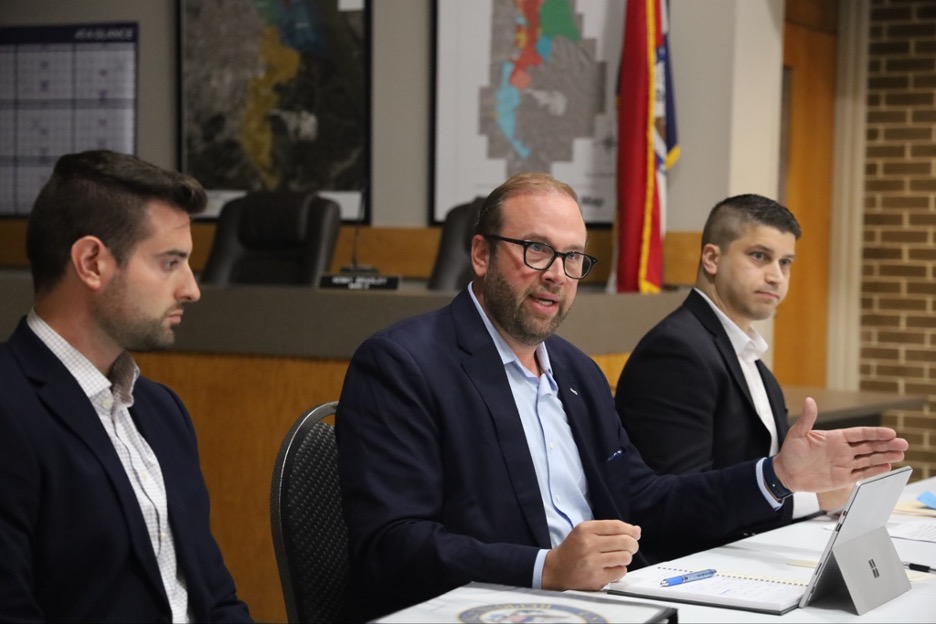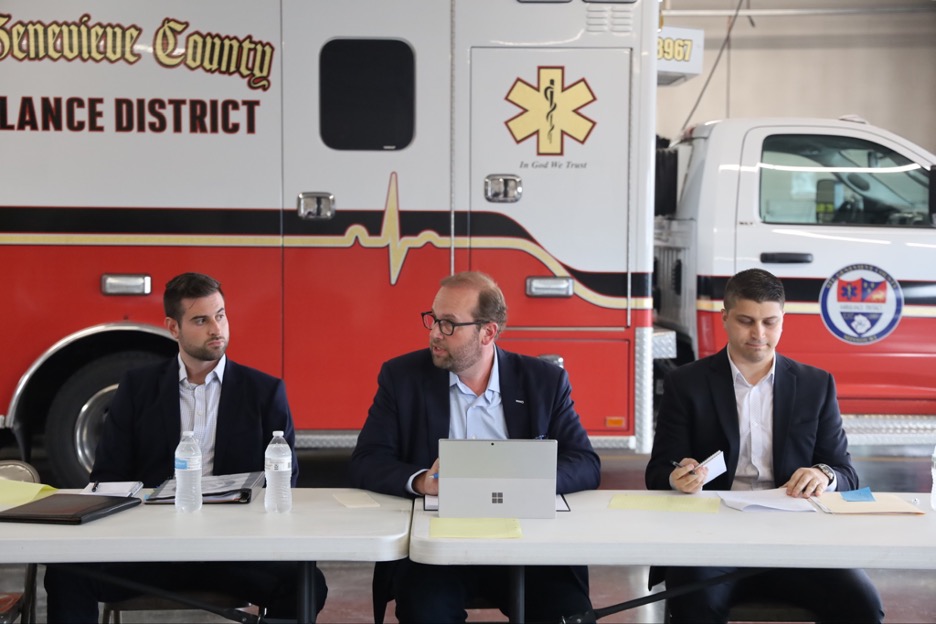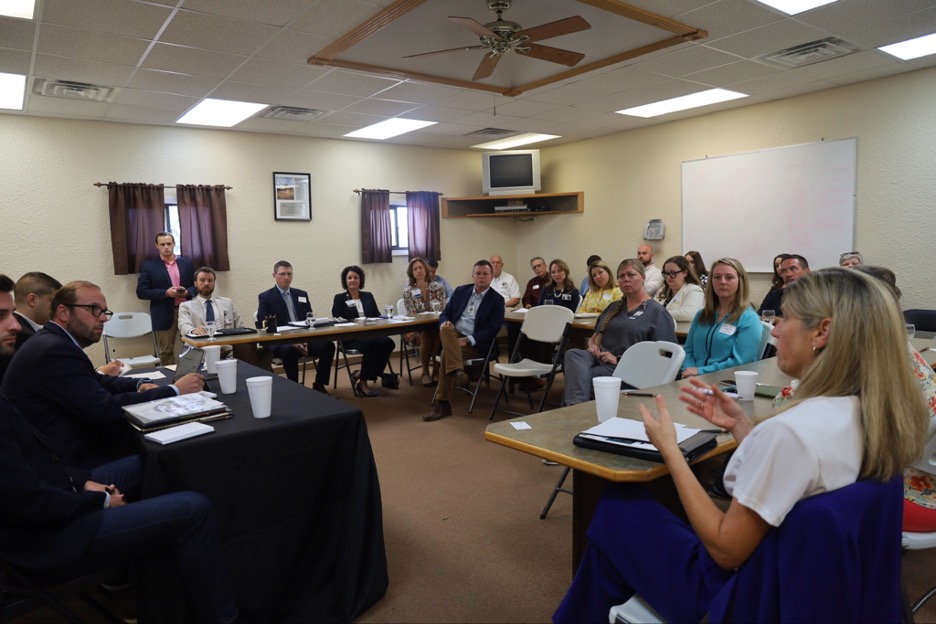SOUTHEAST MISSOURI – On a tour of health care facilities throughout southeast Missouri, doctors, hospitals, health care workers, and local leaders met with Ways and Means Committee Chairman Jason Smith (MO-08) to examine the harsh realities of access to quality health care in rural America. Folks shared stories of the challenges they face providing and getting care, including the impact of hospital closures, staff shortages, soaring costs, and one-size-fits-all regulations that make it harder for providers to care for patients. The tour comes on the heels of the Ways and Means Committee issuing a public request for information on ideas to solve rural America’s health care crisis.
Chairman Smith released the following statement following the meetings:
“It’s clear the status quo for rural Americans doesn’t work. People told me about the problems they face, like long drives to faraway hospitals, providers losing staff to city hospitals, Medicare reimbursements that disadvantage rural providers, and Washington regulations that threaten to shut down rural health facilities. As the Chairman of the Ways and Means Committee, I have asked for a broad range of stakeholders to submit their ideas for how to solve the health care challenges that rural and underserved areas face. Washington needs to hear the voices of Americans who are on the frontlines of the rural health crisis. We must find solutions to put an end to the rural health crisis and improve the quality of life in communities all across the nation.”
Growing the Rural Health Workforce
In Crystal City, Chairman Smith sat down with doctors to listen to the challenges they face, such as the shortage of providers in rural areas. A former primary care physician told Chairman Smith that a major factor discouraging physicians from practicing in rural areas is the lack of a work-life balance, whether it’s spending time dealing with burdensome paperwork instead of treating patients or working very long hours:
Primary Care Doctor: “[Primary care physicians] are going to deal with more prior authorizations… If you’re a family medicine physician, particularly, you are more likely to work with underserved populations, whether that’s the urban underserved, or the rural underserved. So you are doing that work that requires a lot more outreach and time. … And it is exhausting work. I can tell you that first hand. It is absolutely exhausting work.”

Improving Coordinated Care for Patients
During his listening session at the Ste. Genevieve Co. Ambulance District, which provides emergency ambulance services and routine transfers for 18,000 rural Missourians, health care workers shared new ideas for improving rural health care, including by promoting coordinated care among providers to not only improve patient health care outcomes, but also save them time and money:
Paramedic: “That’s why we were looking at the community paramedics to partner with the hospitals and work with the health departments to provide that care to prevent [patients] from needing the emergency services that trickle down into those health care providers and patients.”
Pharmacist: “Everyone here I think agrees that coordination of care is important, right? There’s no incentive on any plan out there to help coordination of care. Everyone sits in their own little bucket… it’s just it’s too disjointed and no one is incentivized to work together.”

Protecting Rural Hospitals
In Fredericktown, Chairman Smith’s listening session focused on finding solutions to help protect rural hospitals. Local hospital staff told Chairman Smith that a new Rural Emergency Hospital (REH) designation for a St. Francois County hospital allows them to retain 24-hour emergency care services and provide much-needed primary care to rural patients:
Hospital Administrator: “It will be very beneficial in terms of our ability to expand access to emergency care and primary care. … For us, it is wonderful, and we very much appreciate that both the federal government and state of Missouri making that available that to us…Our ability to maintain that emergency service in that location is going to be tremendous…we’re going to be able to expand the number of providers in that clinic…”

Supporting Rural Nursing Homes
Talking with nursing home administrators in Sikeston, one topic dominated the conversation: the harmful impact the Biden Administration’s newly proposed staffing regulations will have on rural facilities. According to the Biden Administration’s own estimates, the impact of their proposal would cost nursing homes more than $40 billion over a decade, disproportionately hurting rural facilities that are already struggling to hire and retain qualified employees:
Nursing Home Administrator: “The proposed staffing guidelines…if you can kill that completely dead, that’s the best thing you could do for rural health care and health care in general. Staffing mandates don’t work. If we paid a hundred dollars an hour, we couldn’t find people to pay it to. Staffing guidelines are not going to improve quality. All they’re going to do is create another platform for an inefficient use of federal money.”

READ: Biden Administration Mandates Threaten Already Troubled Health Care Access in Rural America
